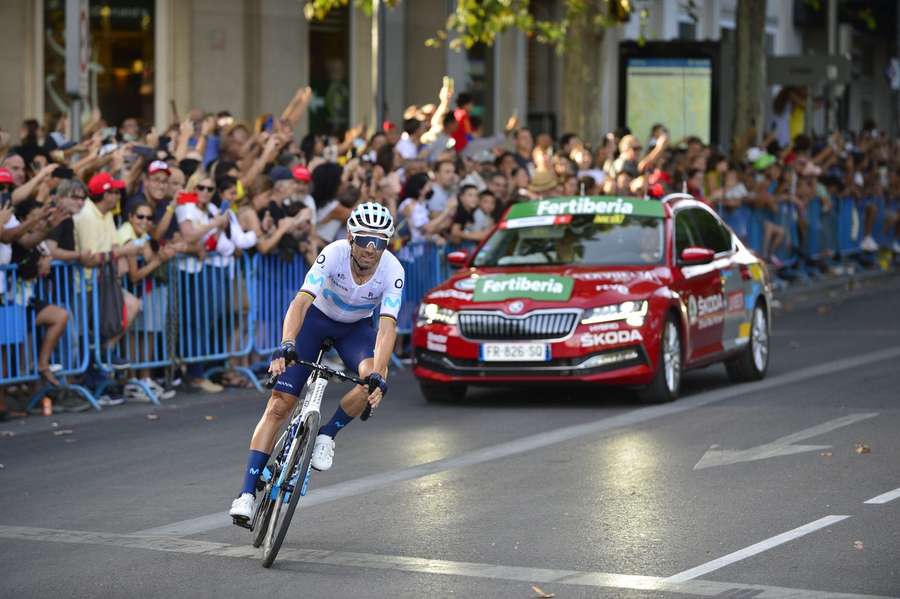This year's Vuelta a Espana will present a steep challenge

The race starts in the Catalan capital on August 26 and finishes in Madrid on September 17. In between it visit France and Andorra and break in several new ascents.
"The mountains are part of the DNA of the Vuelta and will still thrill us in 2023," said Javier Guillen, the director of the Vuelta, at the presentation of the route at the Palace of Catalan Music in Barcelona.
Champion Remco Evenepoel has already said he will race the Giro d'Italia at the start of the season and then skip the Tour de France, which would leave him fresh to defend his Spanish title.
Last year, the young Belgian took the overall lead on the first mountain-top finish and held it the rest of the way for his first major tour victory.
This year the climbing starts even earlier.
After starting with two stages in and around Barcelona, including a team time trial, the peloton will head for the hills on the third day with a first ever visit to the ski resort of Arinsal in Andorra.
The pack then rides south through Catalonia before stage six takes them to another ski resort, Javalambre, in the province of Valencia.
The second week will start with a flat individual time trial through the streets of Valladolid. Then will ride back to the Pyrenees.
A short but nasty 13th stage will take the peloton over four mountain passes and into France. They will climb the Aubisque and the legendary 17km Tourmalet pass, which the Tour de France has visited 87 times.
"Reaching the Tourmalet will be a milestone in the history of our race," Guillen said.
The next day, the riders will again cross the Pyrenees, climbing two brutal passes before another new mountain destination, Porto de Belagua.
After a second rest day, the pack will head along the hilly coast of the Bay of Biscay for the mountains of Asturias and one of the Vuelta's fearsome climbs, the Angliru, where gradients reach 23 percent.
The last chance for contenders to make up time will come on a hilly penultimate stage. It will be the longest of the race, at 208.4 km, and while none of the climbs rank above third category in difficulty, there are 10 of them.
The race then rolls into Madrid for the traditional finish.

